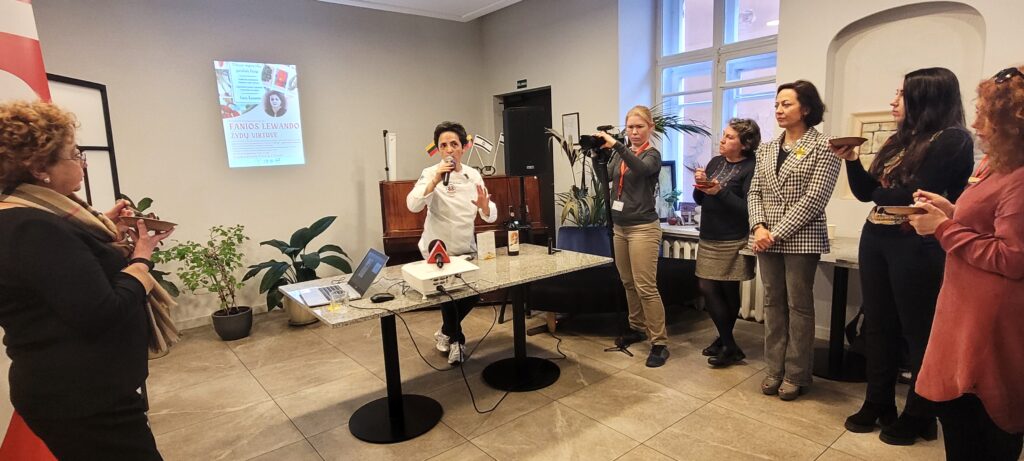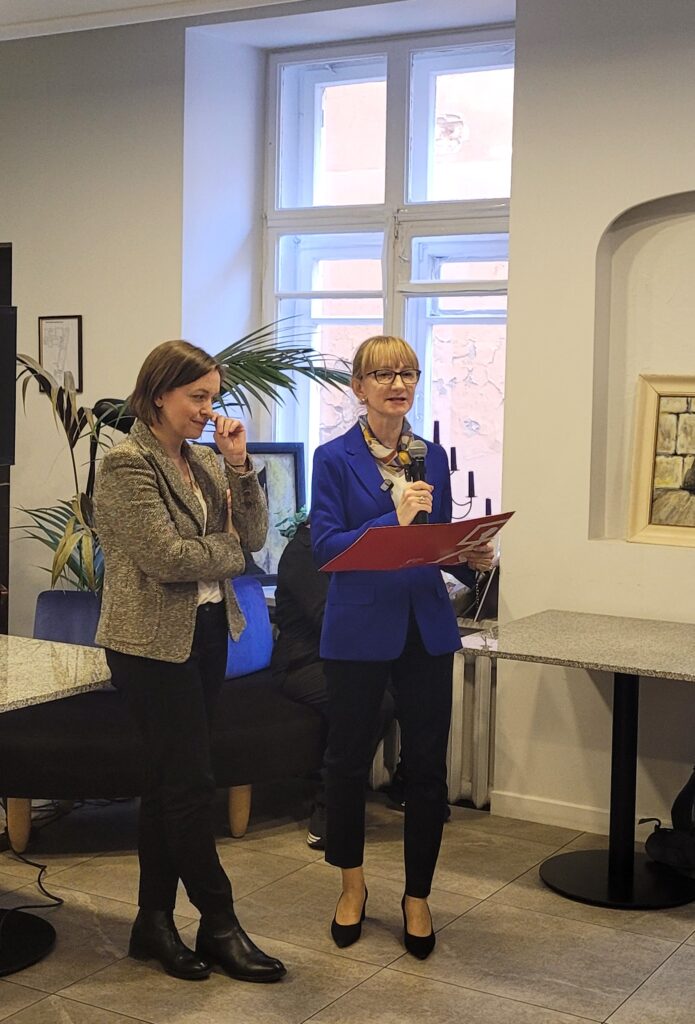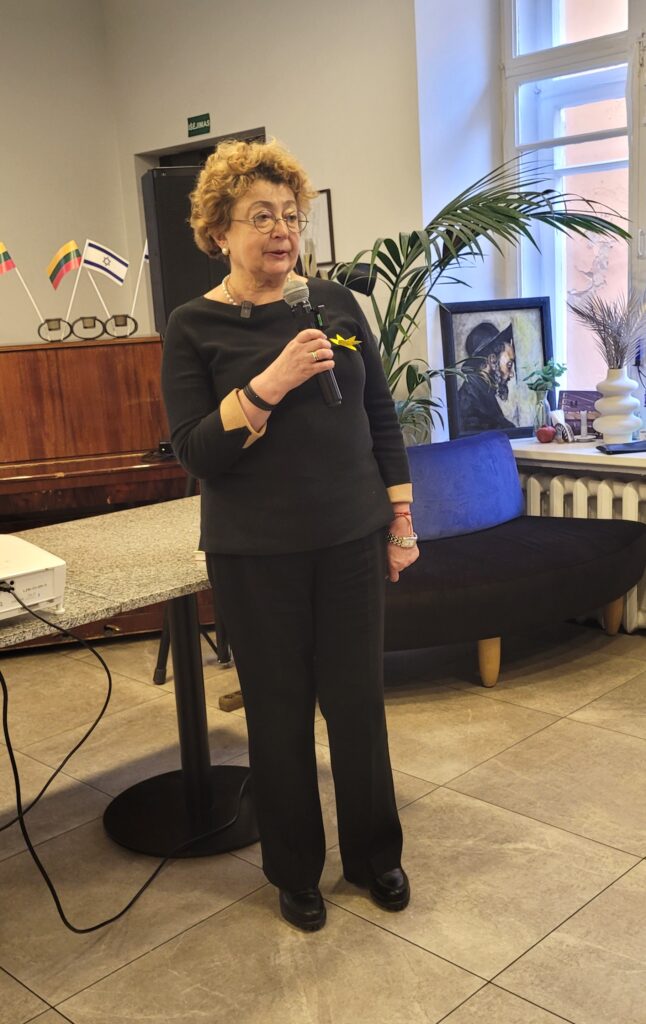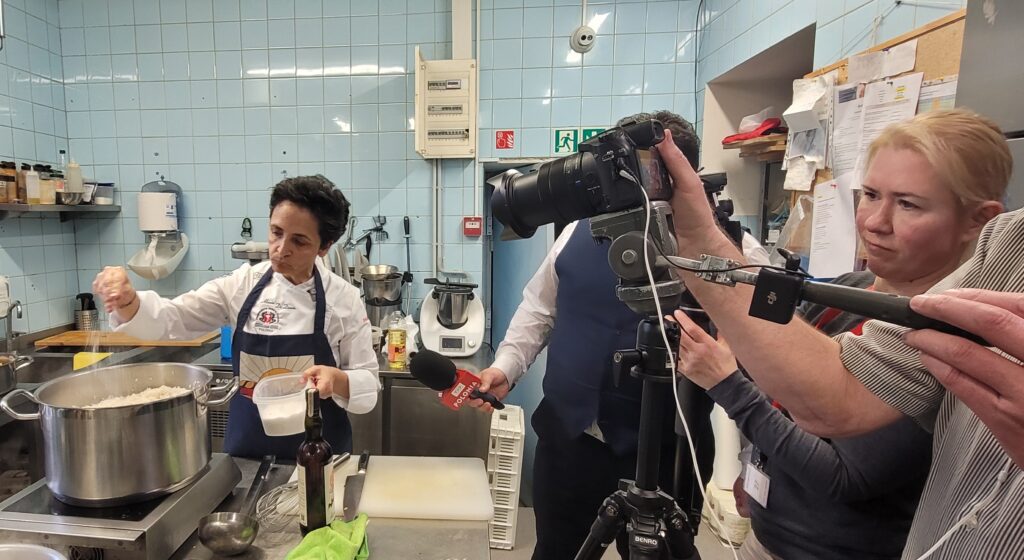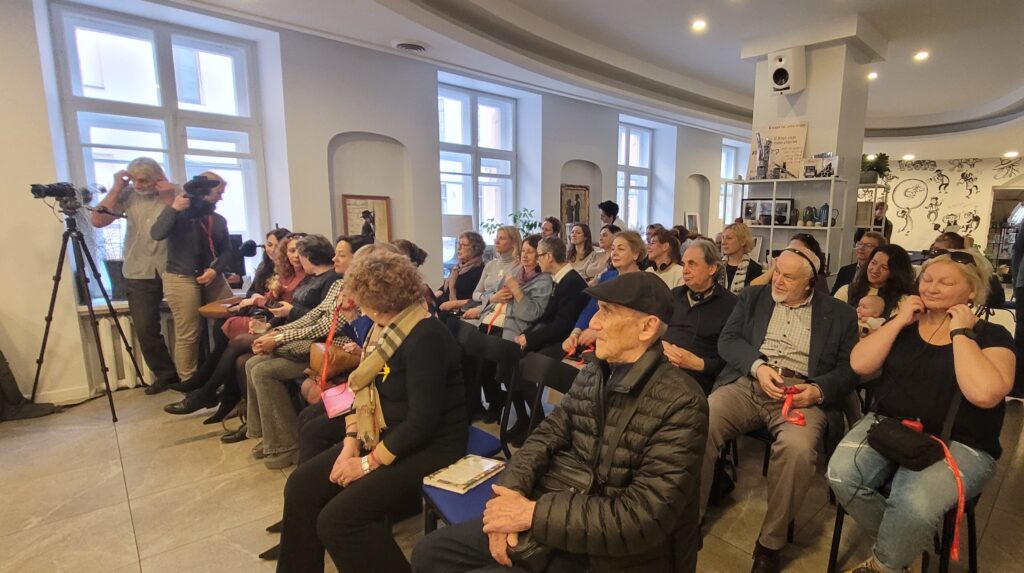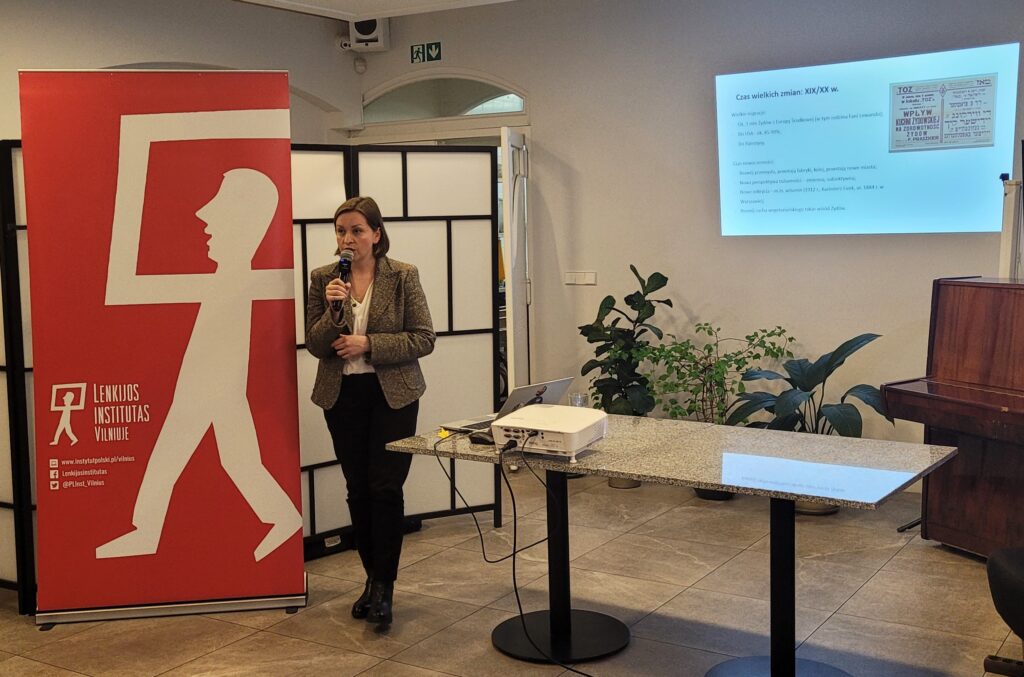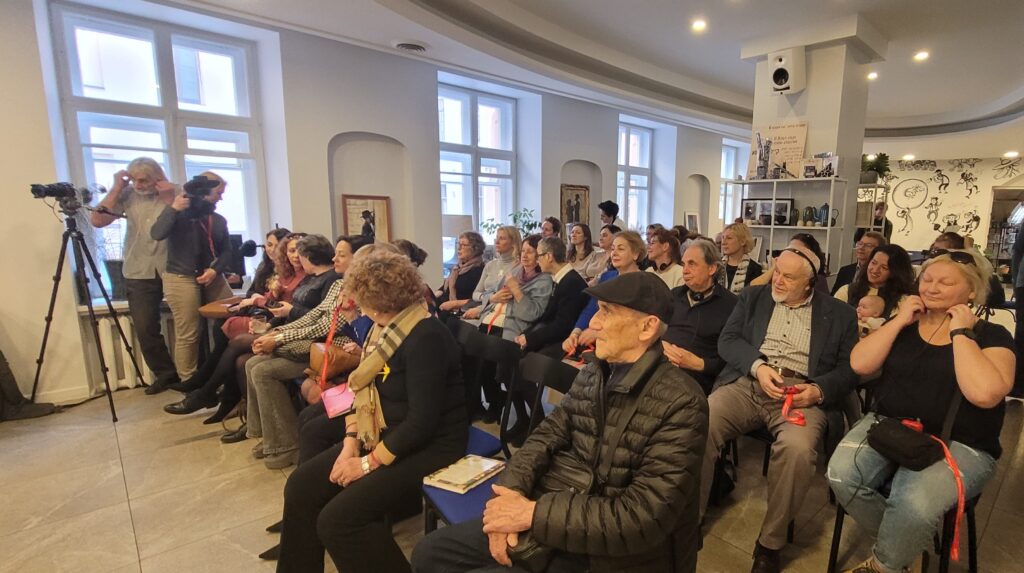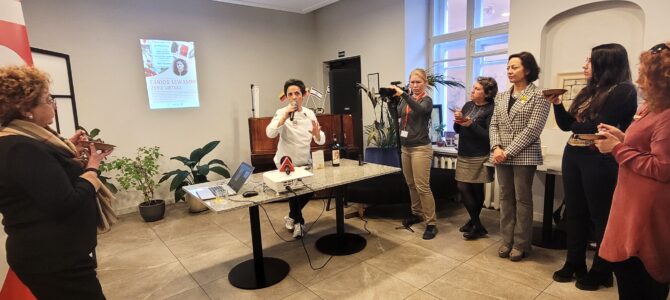Fania Lewando was a legend of interwar Vilnius, an exceptional personality, an innovator, an excellent cook and an entrepreneur, inspiring thousands of fans even after her death.. An event organized by the Polish Institute and the Lithuanian Jewish Community and held last week was dedicated to her.
A detailed account based on years of research by Magdalena Maślak, a cultural historian and the curator of the Pauline Museum of Jewish History in Poland, painted a vivid portrait of the unusually strong personality of Fania Lewando, and Alessia di Donato, a chef from Rome, an expert in Ashkenazi and Sephardic cuisine, prepared risotto with white wine according to one of Lewando’s recipes and revealed all the intricacies of her vegetarian cuisine.
“I am often asked why I became interested in Fania Lewando’s recipes. In fact, I admire not only her dishes, but also her personality. She was an extraordinary woman, brave, active, full of ideas ahead of her time,” says the Italian, who has been living and working in Poland for ten years.
A couple of days ago, di Donato came to Vilnius for the first time, the city where Fania Lewando lived and worked, walked along the same streets, and found the location on Vokečių street where her vegetarian restaurant once operated.
“This was the fulfillment of a long-time dream. How did I feel? Regret, because it is difficult to imagine what else Fania Lewando would have achieved if she had not died at the beginning of World War II. How many more recipes, discoveries she would have created, how many more destinies she would have changed. But the fact that so many people came here today because Fania Lewando is a testament of her great work,” the chef said.
Fania Lewando was born in the late 1880s in the town of Włocławek, Poland, to the family of Chaim Ephraim Fischlewicz and Esther-Malki. She was the second child, one of five daughters. In 1901 the family emigrated to England, but Fania remained in Poland. She married Lazar (Elizer) Lewando, an egg merchant from Belarus, and moved with him to Vilnius in the 1920s.
In Vilnius the couple opened a restaurant on Nemetska (aka Doitse and Vokečių) street number 14. Numerous warm entries in the guest book show this establishment was very popular. In particular, the restaurant’s visitors included Marc Chagall and the Chernivtsi-born poet and playwright Itzik Manger.
Fania Lewando’s culinary skills were widely known, so it isn’t surprising that before WW II she was asked to manage a kosher restaurant on the transatlantic liner Batory which sailed from Gdynia (aka Gdingen, now in Poland) to New York.
Fania was not only a talented cook but also a teacher. At the culinary school she founded she taught vegetarian cuisine. In 1938 Lewando published a book of vegetarian recipes in Yiddish with the following subtitle: “A collection of vegetarian dietary recipes: 400 dishes prepared exclusively from vegetables.”
Fania Lewando gave birth to a real culinary revolution, changing the traditional view of Jewish cuisine, and became the first to promote the idea of a healthy lifestyle based on a vegetarian diet. “The Vilna Vegetarian Cookbook” is not just an adaptation of Jewish recipes for vegetarians, but also contains many original recipes, such as for chickpea cutlets, Jerusalem artichoke soup, leek frittata, puddings, frosted cakes and even wine recipes.
In the preface just under the heading “For Housewives,” Fania wrote: “A FEW WORDS AND PRACTICAL ADVICE: From a preventive point of view (to protect ourselves and our family from various stomach disorders and other ailments), we need to avoid meat at least three days a week “
Fania Lewando’s success ended with the outbreak of WW II. Fanya and Lazar were killed in 1941.
